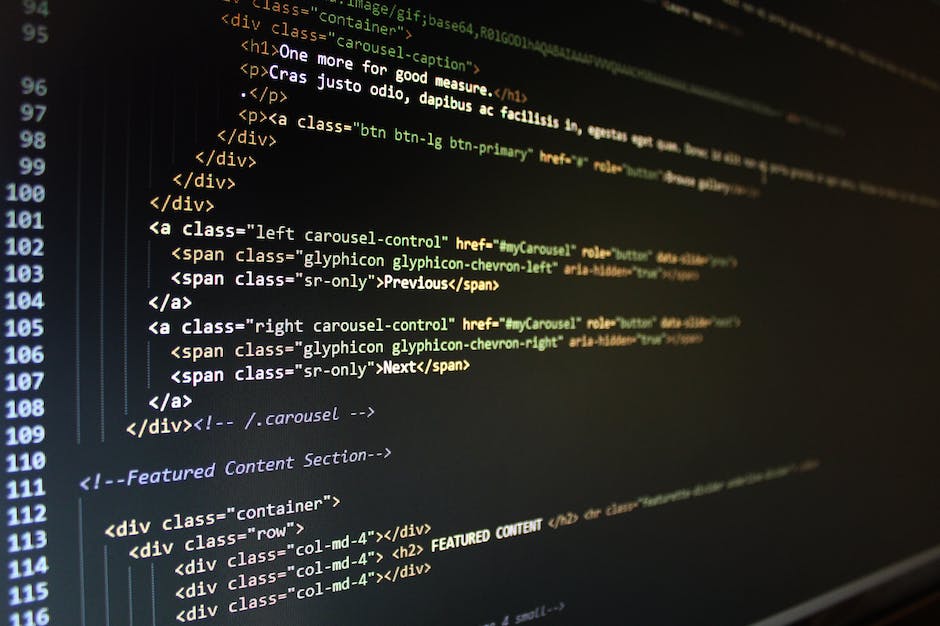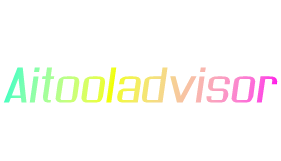-
Table of Contents
- Introduction
- The Impact of AI on Human Rights: Examining the Ethical Implications of AI Technology
- Exploring the Ethical Implications of AI-Powered Automation in the Workplace
- The Role of AI in Facilitating Unethical Business Practices: What Are the Risks?
- The Ethical Implications of AI-Powered Surveillance: Balancing Privacy and Security
- The Ethical Implications of AI-Powered Predictive Analytics: What Are the Risks?
- Conclusion
“Unlock the Potential of AI – But Don’t Forget the Ethical Considerations!”
Introduction
The development and deployment of Artificial Intelligence (AI) technology in various industries has raised a number of ethical concerns. AI technology has the potential to revolutionize many industries, but it also has the potential to cause harm if not used responsibly. This article will discuss some of the ethical concerns associated with the development and deployment of AI technology in various industries, including privacy, safety, and fairness. It will also discuss potential solutions to these ethical concerns.
The Impact of AI on Human Rights: Examining the Ethical Implications of AI Technology
As artificial intelligence (AI) technology continues to advance, it is important to consider the ethical implications of its use. AI has the potential to revolutionize many aspects of our lives, from healthcare to transportation, but it also raises a number of ethical questions. In particular, AI has the potential to impact human rights in both positive and negative ways.
On the positive side, AI can be used to help protect and promote human rights. For example, AI can be used to detect and prevent human rights violations, such as discrimination or abuse. AI can also be used to monitor and analyze data to identify patterns of human rights violations, allowing for more effective interventions. Additionally, AI can be used to automate processes that are currently done manually, such as verifying identity documents or processing asylum applications.
On the other hand, AI also has the potential to be used in ways that violate human rights. For example, AI can be used to target individuals for surveillance or to profile them based on their race, gender, or other characteristics. AI can also be used to manipulate public opinion or to spread misinformation. Additionally, AI can be used to automate decisions that have a significant impact on people’s lives, such as decisions about employment or access to services.
Given the potential for AI to both protect and violate human rights, it is important to ensure that AI is developed and used in an ethical manner. This means taking steps to ensure that AI is developed and used in a way that respects human rights and does not lead to discrimination or other violations. This includes ensuring that AI is developed with transparency and accountability, and that it is subject to appropriate oversight and regulation. Additionally, it is important to ensure that AI is developed and used in a way that is fair and equitable, and that takes into account the potential for bias and discrimination.
In conclusion, AI has the potential to both protect and violate human rights. It is therefore important to ensure that AI is developed and used in an ethical manner, taking into account the potential for both positive and negative impacts on human rights. By doing so, we can ensure that AI is used to promote and protect human rights, rather than to violate them.
Exploring the Ethical Implications of AI-Powered Automation in the Workplace
As technology continues to evolve, so too does the way we work. Artificial intelligence (AI) and automation are becoming increasingly commonplace in the workplace, and while these tools can help to streamline processes and increase efficiency, they also raise important ethical questions.
At the most basic level, AI-powered automation can lead to job losses. Automation can replace human labor, and while this can be beneficial in some cases, it can also lead to a decrease in job opportunities and wages. This can have a particularly negative impact on those who are already economically disadvantaged.
Another ethical concern is the potential for AI-powered automation to lead to discrimination. AI algorithms are only as good as the data they are trained on, and if the data is biased, then the algorithms will be too. This can lead to unfair decisions being made, such as in the case of automated hiring processes.
Finally, there is the issue of privacy. AI-powered automation can lead to the collection of large amounts of personal data, which can then be used for a variety of purposes. This raises important questions about who has access to this data and how it is used.
As AI-powered automation continues to become more prevalent in the workplace, it is important to consider the ethical implications of these tools. It is essential that we ensure that automation is used responsibly and that it does not lead to job losses, discrimination, or privacy violations.
The Role of AI in Facilitating Unethical Business Practices: What Are the Risks?
The use of artificial intelligence (AI) in business is becoming increasingly popular, and with it comes the potential for unethical practices. AI can be used to automate processes, analyze data, and make decisions, all of which can be used to facilitate unethical business practices. While AI can be a powerful tool for businesses, it is important to understand the risks associated with its use.
One of the primary risks of using AI to facilitate unethical business practices is the potential for discrimination. AI algorithms can be trained to recognize patterns in data, and if those patterns are based on characteristics such as race, gender, or age, the algorithm may be biased and lead to discriminatory outcomes. This could lead to unfair hiring practices, pricing, or other decisions that could be detrimental to certain groups of people.
Another risk of using AI to facilitate unethical business practices is the potential for privacy violations. AI algorithms can be used to collect and analyze large amounts of data, and if this data is not properly secured, it could be used to violate the privacy of individuals. This could lead to the misuse of personal information, such as financial data or medical records, which could have serious consequences for those affected.
Finally, using AI to facilitate unethical business practices could lead to a lack of accountability. AI algorithms can be used to automate processes and make decisions, and if these decisions are not monitored or regulated, it could lead to unethical outcomes that are difficult to trace back to the responsible party. This could lead to a lack of accountability and a lack of trust in the business.
Overall, while AI can be a powerful tool for businesses, it is important to understand the risks associated with its use. It is essential to ensure that AI algorithms are not biased and that data is properly secured to protect the privacy of individuals. Additionally, it is important to ensure that AI-driven decisions are monitored and regulated to ensure accountability and trust in the business.
The Ethical Implications of AI-Powered Surveillance: Balancing Privacy and Security
As technology advances, so too does the use of Artificial Intelligence (AI) in surveillance. AI-powered surveillance has the potential to provide greater security and safety for citizens, but it also raises ethical questions about privacy and the use of personal data. This article will explore the ethical implications of AI-powered surveillance, and how to balance privacy and security.
AI-powered surveillance systems use algorithms to analyze data from cameras, sensors, and other sources to detect suspicious activity. This technology can be used to monitor public spaces, detect crime, and even identify individuals. While this technology can be beneficial in terms of security, it also raises ethical questions about privacy.
The use of AI-powered surveillance raises concerns about the potential for misuse of personal data. AI-powered surveillance systems can collect and store large amounts of data, including images, videos, and audio recordings. This data can be used to identify individuals and track their movements. This raises questions about the right to privacy and the potential for misuse of personal data.
In addition, AI-powered surveillance systems can be biased. Algorithms used in AI-powered surveillance systems can be biased against certain groups, leading to unfair targeting and discrimination. This raises ethical questions about the use of AI-powered surveillance and the potential for abuse.
In order to balance privacy and security, it is important to ensure that AI-powered surveillance systems are used responsibly. This means that data collected should be used only for legitimate security purposes, and that individuals should be informed about how their data is being used. In addition, AI-powered surveillance systems should be regularly monitored to ensure that they are not biased against certain groups.
Ultimately, AI-powered surveillance systems can be beneficial in terms of security, but they also raise ethical questions about privacy and the potential for misuse of personal data. It is important to ensure that these systems are used responsibly and that individuals are informed about how their data is being used. By taking these steps, we can ensure that AI-powered surveillance systems are used in a way that balances privacy and security.
The Ethical Implications of AI-Powered Predictive Analytics: What Are the Risks?
As technology advances, so too does the use of AI-powered predictive analytics. This technology has the potential to revolutionize the way businesses and organizations make decisions, but it also carries with it certain ethical implications. In this article, we’ll explore the risks associated with AI-powered predictive analytics and discuss the ethical considerations that must be taken into account when using this technology.
One of the primary risks associated with AI-powered predictive analytics is the potential for bias. AI algorithms are only as good as the data they are trained on, and if the data is biased, then the results of the analysis will be as well. This can lead to decisions being made based on inaccurate or incomplete information, which can have serious consequences. To mitigate this risk, organizations must ensure that their data is free from bias and that their algorithms are regularly tested and updated to ensure accuracy.
Another risk associated with AI-powered predictive analytics is the potential for privacy violations. As AI algorithms become more sophisticated, they can be used to uncover sensitive information about individuals. This can lead to a violation of privacy rights and can have serious implications for those affected. To protect against this risk, organizations must ensure that their algorithms are designed with privacy in mind and that they are regularly tested to ensure that they are not collecting or using data in an unethical manner.
Finally, AI-powered predictive analytics can also lead to a lack of transparency. As algorithms become more complex, it can be difficult to understand how they are making decisions and why. This can lead to a lack of trust in the results of the analysis and can make it difficult for organizations to explain their decisions to stakeholders. To address this risk, organizations must ensure that their algorithms are transparent and that they are regularly tested to ensure accuracy and fairness.
In conclusion, AI-powered predictive analytics can be a powerful tool for businesses and organizations, but it also carries with it certain ethical implications. Organizations must ensure that their data is free from bias, that their algorithms are designed with privacy in mind, and that they are regularly tested to ensure accuracy and transparency. By taking these steps, organizations can ensure that their use of AI-powered predictive analytics is ethical and responsible.
Conclusion
The development and deployment of AI technology in various industries presents a number of ethical concerns that must be addressed. These include issues such as privacy, data security, and potential bias in decision-making. It is important for organizations to consider these ethical concerns when developing and deploying AI technology, and to ensure that appropriate safeguards are in place to protect the rights and interests of all stakeholders. Ultimately, the responsible use of AI technology can help to create a more equitable and just society.






occaecati aspernatur officiis exercitationem ut perspiciatis fugit aut omnis vero quae dolor ut deserunt molestias. quo officia inventore deserunt veritatis. sed mollitia dignissimos excepturi laboriosam voluptates doloribus quibusdam corrupti quisquam quia et. autem debitis et ad unde voluptates qui asperiores consectetur minima omnis atque quo doloribus. fuga cum voluptatibus debitis corrupti error voluptates eligendi dolores.